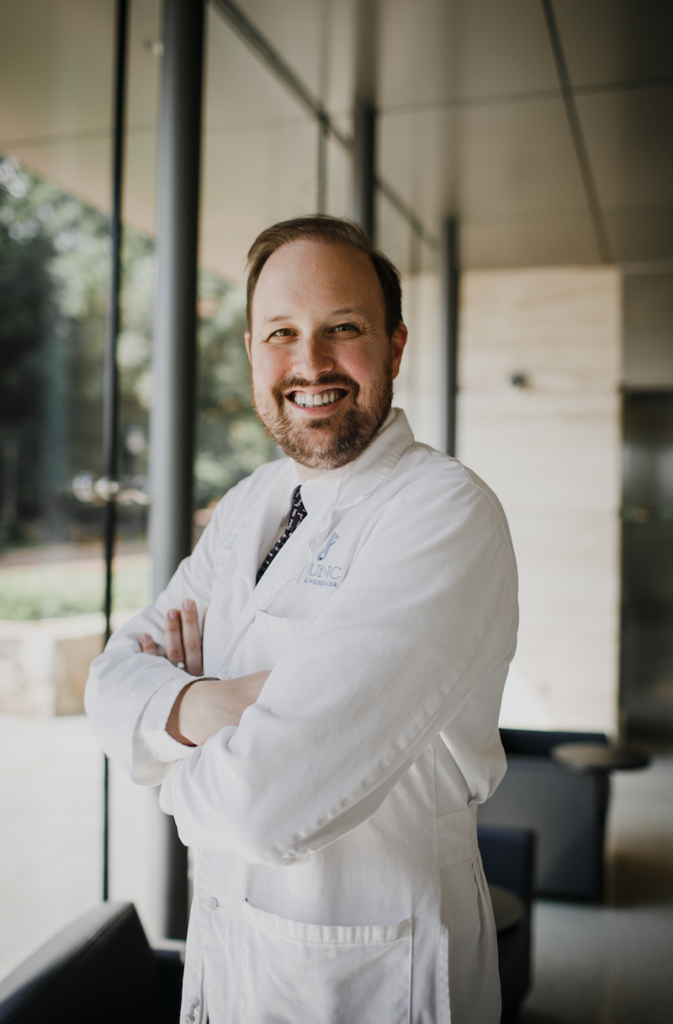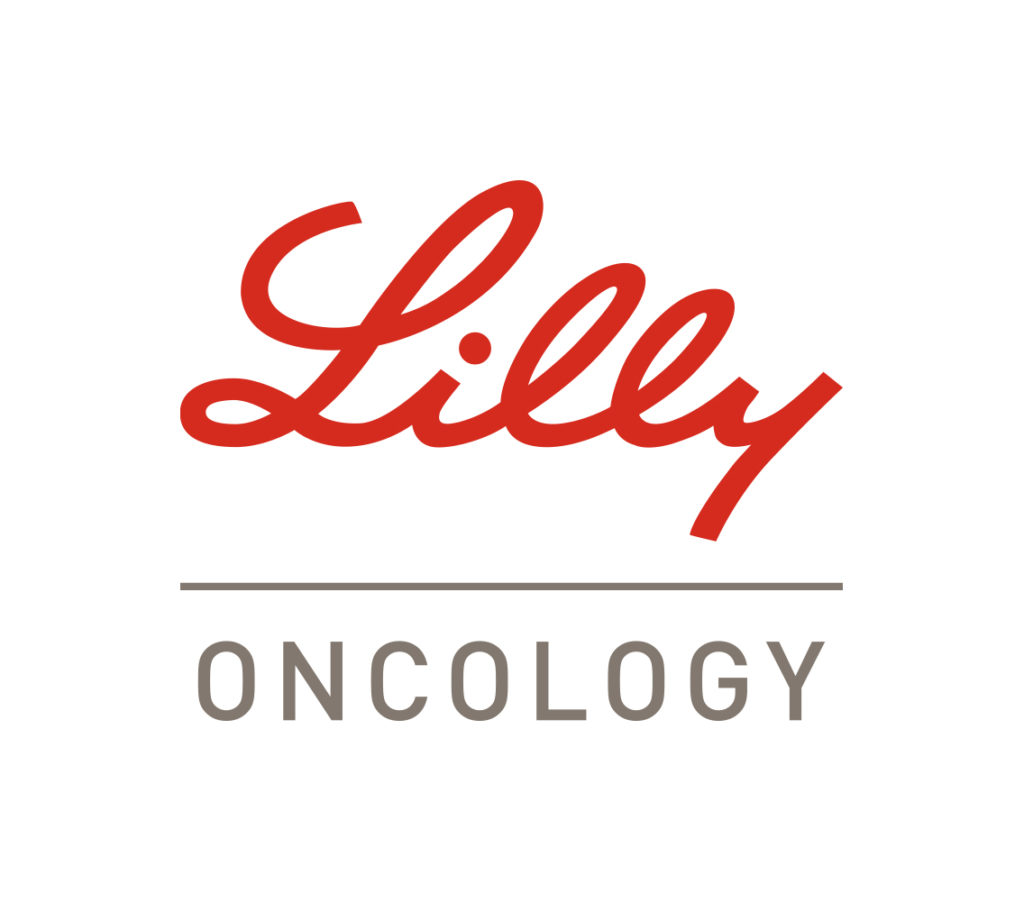This week on Real Pink we are hosting daily conversations about metastatic breast cancer (MBC) as part of National Breast Cancer Awareness Month. In the US alThis week on Real Pink we are hosting daily conversations about metastatic breast cancer (MBC) as part of National Breast Cancer Awareness Month. In the US alone, MBC is expected to kill 42,000 people. To turn MBC awareness into action, visit: https://mbc.komen.org/ and contact your local lawmakers by texting “MBC” to 40649.
Meet Dr. Vincent

Benjamin Vincent, M.D. is an Assistant Professor in the Department of Microbiology and Immunology at the University of North Carolina, Chapel Hill. He received his medical degree from UNC and has a background in tumor immunology. The goal of his work is to understand anti-tumor immunity and translate his findings into immunotherapy strategies to improve outcomes for patients. He has been funded by Komen for the past three years where his research project has been aimed at better predicting treatment response in patients with metastatic triple-negative breast cancer.
Transcript
Adam (00:01):
This week on the Real Pink Podcast, we are having real discussions about metastatic breast cancer. We’ll be welcoming researchers, advocates, and people living with metastatic breast cancer to share their stories, their experiences, and their words, and encouragement. Everyone can make a difference in the life of someone living with this disease by donating to breakthrough research and urging elected officials in Washington, DC to pass pending legislation that would directly help this community details and how you can turn awareness into action in today’s podcast description.
Adam (00:33):
Dr. Vincent is an assistant professor in the department of microbiology and immunology at the University of North Carolina Chapel Hill. In this episode, he shares why the patient experience is so important to research in his personal experience with the disease research, cures cancer, nothing else does. And that is why Dr. Vincent is so passionate about his work. Dr. Vincent, welcome to the show.
Dr. Vincent (00:57):
Thanks Adam. I appreciate the chance to speak with you.
Adam (01:00):
Well, I’m looking forward to hearing from you. I love talking to researchers and trying to just understand a glimpse into your world that is at times very complex for the rest of us. Let’s start out on a personal level. Let’s talk first about how breast cancer has impacted you outside of the lab. Do you have a personal connection to breast cancer?
Dr. Vincent (01:18):
I do. There are some women in my family that have had breast cancer and are at increased risk of breast cancer as well.
Adam (01:28):
Gotcha. Yeah, that makes sense. Well, I’m glad that you’re doing this research for their benefit and for the benefit of really all the rest of us as well, because I think breast cancer impacts really almost everyone in some ways. So thank you for the work that you’re doing. So now let’s talk about you as a physician. So you’re a physician you interact with patients. What have your patients taught you that you did not learn in medical school?
Dr. Vincent (01:52):
Well, you know, I think breast cancer patients taught me a lot about why I wanted to go into oncology as a physician in general. Thinking back to my experience in, in medical school, I had already studied immunology. I knew I wanted to be an immunology researcher, but I didn’t know where my clinical home would be and rotating on the wards as a third and fourth-year medical student with fantastic breast cancer clinicians Lisa Carey, who is still around at my institution, University of North Carolina in Chapel Hill. And then and then Jeff peppercorn, who has since moved on, but two breast cancer clinician-scientists really taught me about oncology care in the context of learning and seeing patients, including breast cancer patients, approach living with their cancer with such grace and compassion for each other and their families going through extremely difficult times.
Dr. Vincent (02:49):
I felt when I was a young student, didn’t really know what I was doing from a medical point of view, just that, that I wanted to help people like this, that these are in thinking, these are my people. And so that spurred an interest in oncology and really buried with my, with my immunology research interests to make me into the physician-scientist I am today. I think some of the things I learned from early patients that I cared for that breast cancer patients are, are often very strong and resilient, but that doesn’t mean they can do it all on their own. It doesn’t mean they don’t need help and they need people coming beside them. Also, breast cancer patients are smart. They know what’s going on with their bodies and respond to honesty and authenticity. And one of the things I appreciate that I was taught from very early as a clinician is how to do shared decision-making with patients, how to sit with someone and their family and their caregivers and try to understand what are, what are the person’s values? What are their goals? What are their dreams and know what is within our power to help, you know, for the, for them to, to achieve those things? I think the care of cancer patients is very much integrated into their families and communities and other caregivers. And that’s critical. The patient’s quality of life is to have everyone in a room together.
Adam (04:15):
Yeah. Wow. That’s fantastic. And you know, I would take just a second to second, what you said that the breast cancer patients and survivors are some of the strongest people that I’ve ever met. I mean, just being able to host the show, I’ve met so many amazing, I mean, just unbelievable individuals. It’s just been such an honor. And so thank you for mentioning and sharing that. So let’s talk for just a moment. Why is it so important to keep the patient experience in mind when you’re working in a lab?
Dr. Vincent (04:42):
Sure. I think, you know, my lab, we are unashamedly a translational lab, meaning we’re working on things. We’re trying to build new therapies that will lead to breast cancer cures. And that in itself is driven by patient interactions because it’s what patients and it’s what their families desire, you know, and as oncologists, we want what’s best for our patients. We want to help them as we can. And sometimes because of the limitations of medicine, the best that we can do is to help shepherd them through the dying process and help them to be as comfortable as possible, actualize their values as much as possible. But every time that happens, that even when we’re doing well, it’s a tragedy and you wish you had for power to influence events. You know, you wish you had a pill that can cure someone and that’s what we desire and that’s what they desire.
Dr. Vincent (05:36):
But we certainly lose something. If we focus only on the biology of the cancer and not think about what are the effects on the person in their family to get any given treatment that we might come up with. I mean, you, you’ve probably spoken with metastatic breast cancer patients in clinical trials, and sometimes they’ll talk about the clinical trials are actually rather difficult. You even getting to the clinic every day or twice a day for labs, there are there side effects of therapy that are sometimes quite debilitating. There’s the uncertainty ambiguity around? Is this working? Is this not working? Is this really the right thing for me to be doing now? Or should I go home and be with my family? And how do I know I’m doing the right thing? All of those things are, are difficult. And I mean, I’ve really appreciated in the lab, patient advocates affiliated with Komen specifically Susan Palmer and Patty Spears who have come in, who have spoken with my lab members and me and helped guide our, our research projects.
Dr. Vincent (06:36):
I can tell you, you know, in addition to translational immunotherapy we’re also working on developing diagnostic tests to look for longterm immunological memory to a patient’s cancer. So the idea is if you stimulate the immune system to attack the cancer, then the cancer’s gone well, how do you know if it’s going to come back? And that worry about potential relapse is something that cancer patients, even when they’re cured, they live with for the rest of their life and every little ache, every little pain, every little wake in the morning with sniffles or some nausea, people wonder is this my breast cancer again, and psychologically very you know, it can be devastating and it’s very painful. And so if we had some way to say, to tell a patient, Oh, we can still see that immunological memory to your cancer. And if we’re right, that means you’re protected. You’re still protected years later and add some additional psychological assurance. I think that can certainly help people’s quality of life. And that’s a whole research game that was developed by, you know, and after speaking with patients who were talking about some of their kind of fears around relapse, even after, even when they’re doing well.
Adam (07:52):
Yeah. I love that. So as an early career investigator, you’re, you’re really just at the beginning of your career, where do you think we will be in terms of MBC treatment and patient outcomes towards the end of your career?
Dr. Vincent (08:06):
Well, I’ll tell you what we, what we hope for. I mean, I hope for patients who present for care, even with early-stage breast cancer can get potentially curative therapy, but then have that followed by a vaccine or a cell therapy or some kind of combination immunotherapy that will wipe out all of the cancer cells in their body. And they’ll no longer be at risk for developing metastatic breast cancer. So they can really have surety that they’re cured. And then for patients who present with metastatic breast cancer, initially that they will be able to get some combination immunotherapy that drives their cancer into remission and cure. And then similarly, I hope that we’ll have laboratory tests that will clearly be able to tell us with surety that patients have longterm immunological memory and they will not relapse. They will not develop metastatic disease. And I think in the even further distant future, and I hope I live to see this, the immunotherapy will replace the currently more toxic forms of breast cancer therapy like chemotherapy and some of the biologic therapies.
Adam (09:16):
Yeah. I love that vision that you just painted for us. And I certainly, I certainly hope for those things as well. And I think it’s all about research. Research is all about dollars and really that’s really the, what Komen is here to help provide that and help drive research forward. So last question, this has been great. I don’t want to wrap it up, but I do have one last question here. Do you have any advice for NBC patients on how they can talk to their doctors about improving their quality of life?
Dr. Vincent (09:45):
I do. And this is something I think about a lot, because I think a number of patients in breast cancer patients feel like having cancer is something to be ashamed of. They want to keep it quiet, even amongst their family members and caregivers and doctors. There’s this sense of… “If I don’t talk about it, it’s not real.”
Or if I don’t talk about it, you know, I don’t want to talk about it because I don’t want to burden someone else, or I don’t want to talk about it because I think I like to tell patients that cancer is not your fault. It’s not something to be ashamed of, even if it seems like others are putting shame on you because of it. Don’t listen to them, understand that it’s not to be ashamed of and you know, know that you are not your cancer as a person you’re bigger than your cancer. You’re a whole person with hopes and dreams and thoughts and desires and values that make you, you. And even when you have cancer, you’re still you. And that doesn’t change. And so don’t suffer in silence. If you, if you need something, ask, ask your caregivers, ask your doctors.
Dr. Vincent (10:43):
There are people who are there to help. And sometimes a person may not be able to directly help you, but they will connect you with someone who can help or they can offer support. Use the internet to your advantage and find others, use local groups to your advantage and find others. But, you know, please don’t suffer in silence, whatever you need, let somebody know.
Adam (11:02):
That’s right. That’s right. Don’t suffer in silence. Don’t be strong alone. Join a community, get involved, get support. So Dr. Vincent, this has been great. Thank you so much.
Dr. Vincent (11:11):
Sure. Thank you, Adam. I appreciate it.
Adam (11:14):
Support for MBC week is brought to you by our partners, Eli Lilly and Merck. Thank you for joining us on this special episode of Real Pink, focused on metastatic breast cancer. You can help the metastatic breast cancer community today by donating to breakthrough research by visiting mbc.komen.org. You can also contact your local lawmakers by texting MBC to 40649.
Sponsors

The More for MBC Facebook page is a Lilly-owned page that aims to provide people living with metastatic breast cancer a platform to engage.

Merck invents for life – our mission is to deliver innovations that extend and improve the lives of people with cancer.
About This Episode
Intro and outro music is Into Thy Heart – Instrumental Track by Ivan Chew.
